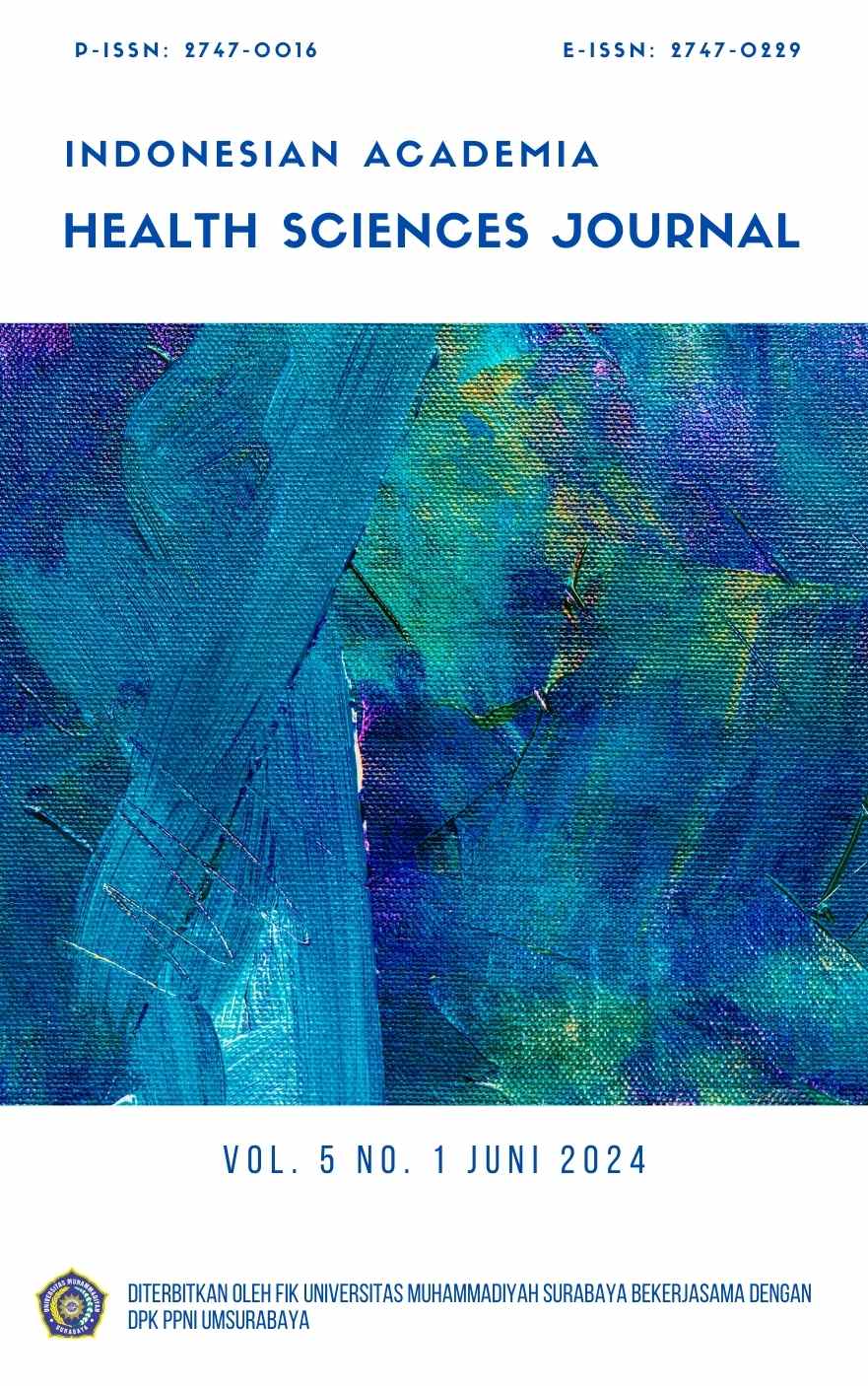Terapi Musik Dalam Mengurangi Depresi Pada Lansia di Panti Werdha Hargodedali Surabaya
Abstract
Background :The aging process is a natural process accompanied by a decrease in physical condition with a visible decrease in the function of the body's organs. An increase in one's age will be accompanied by various physical, psychological and social setbacks. Depression is a common illness worldwide and more than 300 million people are affected by it. Depression is different from ordinary mood fluctuations and short-term emotional responses to challenges in everyday life. Elderly depression has an impact including shortening life expectancy by exacerbating physical decline in the elderly, hindering the fulfillment of elderly developmental tasks, reducing the quality of life of the elderly, emotionally and financially draining the affected person as well as their family and social support systems. Method The design used in this study is descriptive with a case study approach. Analysis: The unit of analysis in this case study is an individual, namely the elderly who experience depression at the Hargodedali Nursing Home, Surabaya. Results and Discussion: The results were obtained before classical music therapy was carried out on the first day, the first respondent's level of depression was at a mild level, while the respondents both are at moderate level. After doing classical music therapy for three times, the first and second responders experienced a decrease which was at the level of not being depressed and mild. The results were obtained before classical music therapy was carried out on the first day, the first respondent's level of depression was at a mild level, while the second respondent was at a moderate level. After doing classical music therapy for three times, the first and second responders experienced a decrease which was at the level of not being depressed and mild. The results were obtained before classical music therapy was carried out on the first day, the first respondent's level of depression was at a mild level, while the second respondent was at a moderate level. After doing classical music therapy for three times, the first and second responders experienced a decrease which was at the level of not being depressed and mild.
Full text article
Authors
Copyright (c) 2024 Fathiya Lutfil Yumni, Surya Puji Kusuma, Nur Mukarromah

This work is licensed under a Creative Commons Attribution-NonCommercial-NoDerivatives 4.0 International License.

